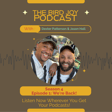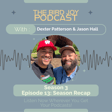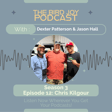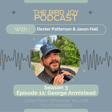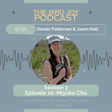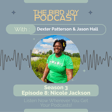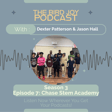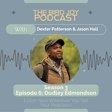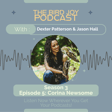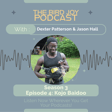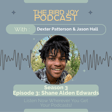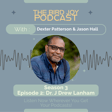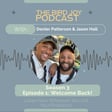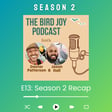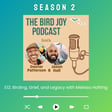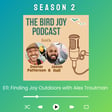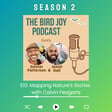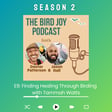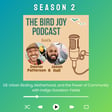Speaker
That is, I mean, just the the level of depth and thought, and I can feel personal experience in that as well. Seems like it has guided quite a, quite a pretty focused mission. And I want to take that and kind of pivot to field inclusive week, right? Because I, I was, I knew it was coming up, but I didn't check the agenda. And then when I checked the agenda, I was like, Oh man, this looks insane. um I think Lauren, you you mentioned it January 12th through 18th, 2025, and you can find all these details at fieldinclusive.org. But man, y'all got some hitters on here. Some amazing panels through the week on field safety, accessibility, inclusive LGBTQIA plus webinar panel. there's a nature walk. Oh, and by the way, you're just going to end the week with Dr. J. Drew Lanham and Matthew Morgan. Like, like it's nothing, right. in conversation about but out will like playing with my I certainly encourage folks, like, even if you're not a field ornithologist or a field biologist or a field scientist in general, this week is going to be tremendous. Right. And and I got to ask, like, just selfishly, like which ones are YouTube most excited about in terms of the events due the week? I know you're excited about all of them. Yeah. Like which one you feel like? I would have to say all of them. No, I do. Well, well and I do want to touch on a point that you said, you know, so this year we incorporated something new, which is offering workshops. We haven't done this in previous years. Accessibility is a huge one that we do, like a huge you know event that we do. It's probably our most viewed one that people come to. We wanted to bring in some some people who could lead an accessibility workshop, and then we'll be doing our field inclusive, our social field safety workshop. So those are both exciting. I would say for me, definitely the one with my great friend, Drew, of course, 100%. I have a wonderful moderator that I've known from my my area, my my stomping grounds of Charlotte, North Carolina. So he will be doing a moderated conversation with Drew. So I'm excited about that, talking about Autobons. B, talking about not not just the great things about Autobon, but the controversy. That's going to be a really great one to tune into. And then also, I would say our nature walk. because a people last year was our first year incorporating a in person event since we're based in Raleigh, we've kind of you know, done it here and in this area. But the people who came out to that first event, they were really thankful to again have a space where they could just gather and just go about nature and see some birds. For this one, it'll be the same deal, but it's it's half a day. So we'll have like various food trucks going. We'll have some kids activities. We'll have tons of different nature walks. So not just birds, but plants and insects, everything like that. So that's what I that's what i would have to say on most. I love how Lauren listed everything as her favorite. life

